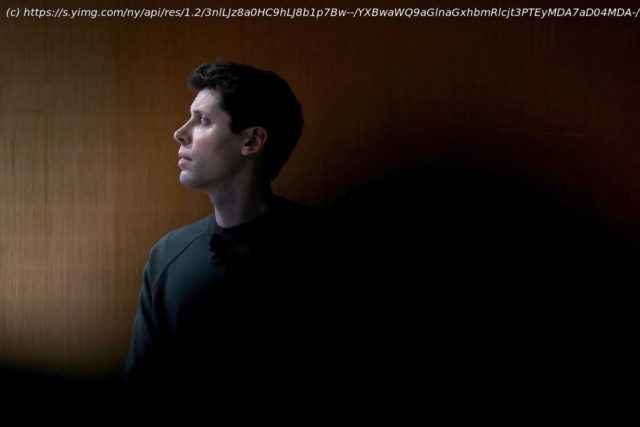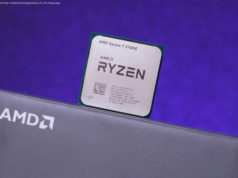(Bloomberg) — Healthy companies led by competent, commercially successful and globally beloved founders generally don’t tend to fire them. And, as Sam Altman walked on stage in San Francisco on Nov 6., all those things could have described his role at OpenAI.Most Read from BloombergOpenAI Board Urged by Microsoft, Investors to Restore AltmanOpenAI Leaders’ Efforts to Bring Back Altman Reach Impasse Over Board RoleAltman Sought Billions For Chip Venture Before OpenAI OusterSpaceX Starship Explod
The Doomed Mission Behind Sam Altman’s Shock Ouster From OpenAI
Healthy companies led by competent, commercially successful and globally beloved founders generally don’t tend to fire them. And, as Sam Altman walked on stage in San Francisco on Nov 6., all those things could have described his role at OpenAI.
The co-founder and chief executive officer had kicked off a global race for artificial intelligence supremacy, helped OpenAI surpass much larger competitors, and was, by this point, regularly compared to Bill Gates and Steve Jobs. Eleven days later he would be fired — replaced by chief technology officer Mira Murati, kicking off a chaotic weekend during which executives loyal to Altman were agitating for his return.
And yet on Nov. 6, at the company’s first developer conference, the acclaim for Altman seemed universal. Attendees applauded rapturously as he ticked off the company’s accomplishments: 2 million customers, including “over 92% of Fortune 500 companies.” A big reason for that was Microsoft Corp., which invested $13 billion into the company and put Altman at the center of a corporate overhaul that has caused it to leapfrog rivals like Google and Amazon in certain categories of cloud computing, reinvigorated its Bing search engine, and put the company in the leading position in the hottest software category. Now, Altman invited CEO Satya Nadella onto the stage and asked him how Microsoft felt about the partnership. Nadella started to respond, and then broke into laughter, as if the answer to the question was absurdly obvious. “We love you guys,” he finally said after he’d calmed down. He thanked Altman for “building something magical.”
But if customers and investors were happy, there was one constituency that remained deeply skeptical of Altman and the very idea of a commercial AI company: Altman’s own board of directors. Although the board included Altman and a close ally, OpenAI President Greg Brockman, it was ultimately controlled by the interests of scientists who worried that the company’s expansion was out of control, maybe even dangerous.
That put the scientists at odds with Altman and Brockman, who both argued that OpenAI was growing its business out of necessity. Every time a customer asks OpenAI’s ChatGPT chatbot a question it requires huge amounts of expensive computing power — so much that the company was having trouble keeping up with the explosive demand from users. The company has been forced to place limits on the number of times users can query its most powerful AI models in a day. In fact, the situation got so dire in the days after the developer conference, Altman announced that the company was pausing sign-ups for its paid ChatGPT Plus service for an indeterminate amount of time.
From Altman’s point of view, raising more money and finding additional revenue sources were essential. But some members of the board, with ties to the AI-skeptical effective altruism movement, viewed this in tension with the risks posed by advanced AI. Many effective altruists — a pseudo-philosophical movement that seeks to donate money to head off existential risks — have imagined scenarios in which a powerful AI system could be used by a terrorist group to, say, create a bioweapon. Or in the absolute worst case scenario the AI could spontaneously turn bad, take control of weapons systems and attempt to wipe out human civilization. Not everyone takes this scenario seriously, and other AI leaders, including Altman, have argued that such concerns can be managed and that the potential benefits from making AI broadly available outweighs the risks.
On Friday though, the skeptics won out, and one of the most famous living founders was suddenly relieved of duty. Adding to the sense of chaos, the board made little effort to ensure a smooth transition. In its statement announcing the decision, the board implied that Altman had been dishonest — “not consistently candid in his communications,” it said in its explosive announcement. The board didn’t specify any dishonesty and OpenAI Chief Operating Officer Brad Lightcap later said in a memo to employees that it was not accusing Altman of malfeasance, chalking his removal up not to a debate over safety, but a “breakdown in communication.” The board had also moved without consulting with Microsoft, leaving Nadella “livid” at the hasty termination of a crucial business partner, according to a person familiar with his thinking.






